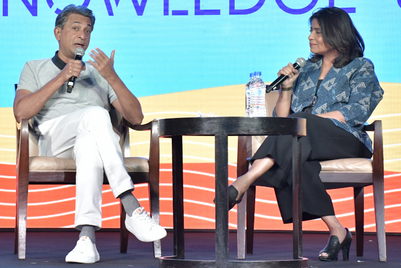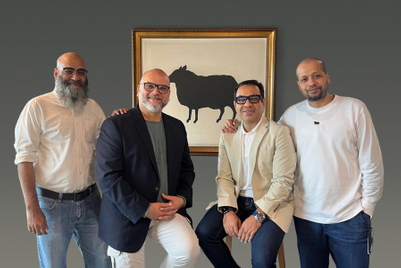
Day three of Goafest witnessed a session discuss gender bias in advertising.
The panel comprised Anupriya Acharya, CEO, Publicis Groupe, South Asia; Kailashnath Adhikari, business head - Sri Adhikari Brothers Network; Anand Narasimhan, managing editor, special projects and senior anchor, CNN-News18 and Tarun Katial, founder and CEO, Coto.
It was moderated by Megha Tata, CEO, Cosmos Maya India.
Speaking on the topic that’s clearly been the talk of the town for quite some time, Tata opened up for conversation, the issue of women's representation in advertising.
Commenting on the same, Acharya stated, “We have progressed over the last 20 years, but it is only the tip of the iceberg. Awareness and education are key. We are clearly not doing enough.”
Acharya added that across a lot of networks, there is a lot of sensitisation, whether in bias training, or going through a lot of work to see if it is progressive enough. “The education and work around it is happening constantly, but the data shows that the needle is not moving enough. We need to do better,” she added.
Importance of showcasing progressive women
Since Katial represents a social community which represents women in quite a progressive way, Tata asked him what the need for doing that today was.
He answered, “Whether in TV, digital or short-form content, the stereotyping of women has been quite hard. When we created daily soaps, they did very well. Characters that showcased women as housewives and caretakers of the family too did very well. Very few actually show them at workplaces doing something different. When we were building our community, we did a lot of research around what's happening.”
Katial added that even apps like TikTok are known for dancing girls. Speaking about how this happens at every level, he explained, “There are such few women leaders even in a tech company, who think of women products. When we were building a product for women, it was almost like a demo product.”
Most tech products that require coding and analytical thinking are still made by men. However, Coto claimed that it made sure that all its product leads and designers are women, since their level of empathy is unmatchable and the way they navigate through UI and UX is completely different.
“Aparna, my co-founder put her foot down saying we cannot hire a male designer or a UX designer who’s a man and we made sure of that,” Katial added.
Onus on media owners
Adhikari cited concerns around the state of women even in the time of the evolving internet. He shared that 37% of women did not have access to the internet. “This is a cause of concern. Even the UN has shared in its women gender snapshot, that several low to middle income countries, losing US$1 trillion in GDP annually because women are excluded from the digital world. There is a need for systematic approaches where bringing women under the ambit of technology will actually lead to solutions.”
Laying out a solution for this, he added, “Empowering women with digital skill sets, will make them future-ready for meaningful careers in media, in content in advertising. At the same time, what we need to do as a society is approach them as a more holistic group. If we do not do that, then the gender bias will naturally be there.”
Giving his two cents on the issue, Narasimhan began by stating that he was a huge advocate of meritocracy. “Whichever field you are, it should not be gender driven, but merit driven. If you're not doing it in your own home as a father or a mother, don't expect anybody else in society to do it. How many of us ensure that the son does as much as the daughter does in the kitchen?,” he asked.
“It all begins from your home. You cannot go ahead and tell someone to change the fruit, when the roots are the same,” he added.
Ending the conversation, Tata urged agencies and marketers to bring in the conversation about the representation of women.


.jpg&h=334&w=500&q=100&v=20250320&c=1)
.jpg&h=334&w=500&q=100&v=20250320&c=1)


.jpg&h=334&w=500&q=100&v=20250320&c=1)


.jpg&h=334&w=500&q=100&v=20250320&c=1)

.jpg&h=334&w=500&q=100&v=20250320&c=1)




.jpg&h=268&w=401&q=100&v=20250320&c=1)



